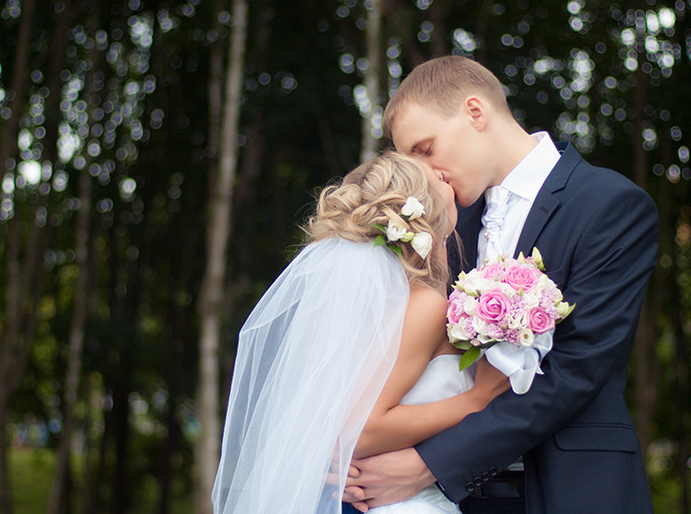Lifestyle
5 tips on choosing and working with a wedding photographer

(Photo: Pavel Diabkin/Flickr)
Your wedding is fast approaching and you have an un-blissfully long to-do list, from finalizing your flower selection to choosing your menu to deciding on your dress.
Near the top of that list you might want to put “select photographer.” That way, one of the most important parts of your wedding – the memories – will be preserved.
Think about booking your photographer soon after you have selected your venue, and make sure he or she is a good fit with your personality.
As a photographer with over 25 years of experience, including more than 50 weddings, I know the importance of selecting the right person. Not only will you be spending your entire day together, but the resulting photos will influence how you remember your wedding.
Look at potential photographers’ electronic portfolios, pricing and availability, and plan to meet several candidates to gauge their sensibility.
Below are five tips on choosing and working with a wedding photographer:
Look for depth
Ask to see a complete portfolio from beginning to end for at least one or two weddings. You don’t want to see only a few “best” photos.
“It’s easy to show a bunch of terrific single images taken at many weddings,” says Radhika Chalasani, “but a great wedding photographer has to capture an entire wedding beautifully from start to finish.
” The New York-based Chalasani has been photographing weddings since 2004.
Looking at portfolios will ensure that the photographer wasn’t just an assistant or a guest with a camera.
You can see how the photographer handles all parts of the wedding, including the preparations, ceremony, cocktails, portraits, speeches, dancing and cake-cutting.
Get a contract
A wedding photographer without a contract (and without liability insurance) is likely not a professional.
The contract should spell out what the photographer will provide, and whether the pictures will be on DVDs, an online gallery, a finished album, etc. It will include the hours worked, and what happens if you ask the photographer to work longer.
In addition, you want to know how things will be handled if the photographer becomes unable to work on the wedding day due to illness or injury. He or she should have a back-up.
The contract also should spell out the cost, the amount of any deposit and when the balance must be paid.
Small, casual weddings might not seem to require a contact, but having one will protect both you and the photographer.
Don’t be shy about what you want
“There’s no harm in being specific,” says Chicago wedding photographer Candice C. Cusic, a photojournalist for 15 years and a teacher at Northwestern University.
Tell the photographer what the most important aspects of the day are to you, whether it’s exchanging rings or walking down the aisle.
“Brides should be realistic about their day and make every possible effort to help their photographer capture great imagery,” Cusic says. A bride or groom getting ready inside a messy hotel room, for instance, will not make for strong pictures, she notes.
Make sure your personalities jibe
Other than your significant other, the person with whom you’ll spend the most time on your wedding day might well be your photographer. He or she will be with you as you get ready and as you go through the emotional highs of the day. The photographer might guide you and your family through a portrait session, walk backward as you process up the aisle, and hang close by during your first dance.
So this person’s personality – sense of humour, demeanour, even appearance – should be a good fit with both of you.
Craig Warga, a New York-based wedding photographer, says “good photography happens when you can get close to your subjects, and they feel completely comfortable being natural and themselves in front of your lens. If you don’t like someone, you’re not going to have that level of comfort in front of them, and it will affect the pictures.”
If you like a sassy personality who will add some colour to your day, then by all means hire a vibrant, outgoing photographer who exudes energy. On the other hand, if you want a subtle documentary photographer who will capture important moments without being intrusive, go for someone who won’t talk loudly over you when you first meet, and who seems cool and composed.
The right photographer, says Warga, is someone who leaves you thinking, “it’d be nice to have that person as a guest at my wedding.”
Sweat some details
Ask if the photographer has a full set of equipment: multiple bodies and lenses with back-ups.
Will he or she be working with an assistant or second photographer? If so, what is the additional cost and does that person need to be there all day?
If your venue will be dark, can the photographer handle it?
Is the photographer able to work in adverse conditions such as rain at an outdoor ceremony?
Finally, make provisions for your photographer to eat; it’s hard to be “on” for eight to 10 hours straight. A 15-minute meal break might just be the best thing you do for the photographer.





















